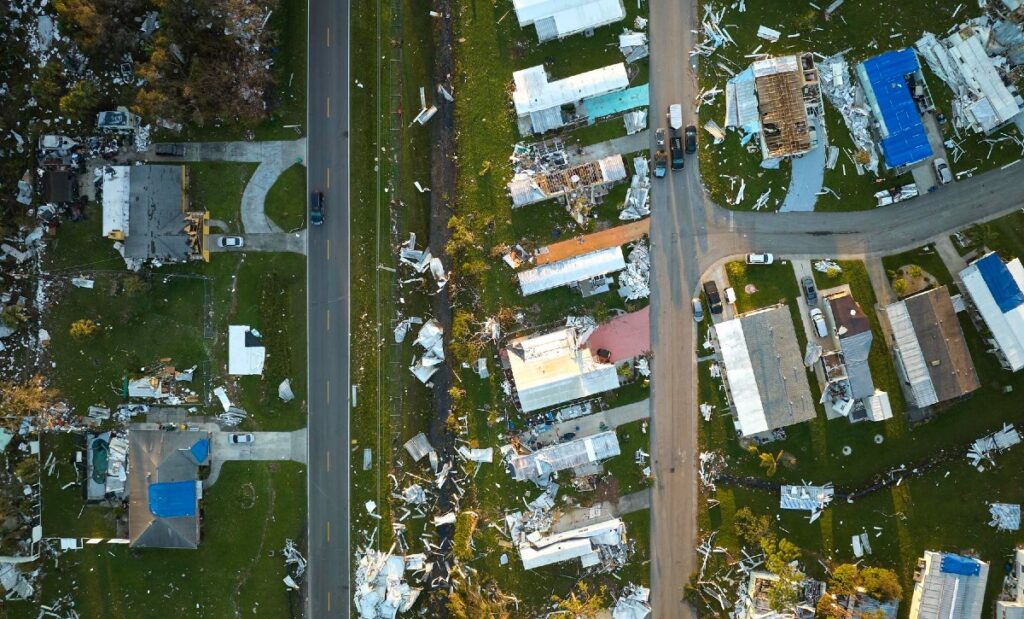Florida is preparing to receive more than $2.7 billion in federal disaster recovery funds after two devastating hurricane seasons. For some reason, Mississippi-based companies with past Mississippi-based companies are positioned again to profit, despite a clear pattern of non-control, inflated, claims and scrutiny across multiple states.
Horne LLP has a deep connection with disaster recovery efforts in the Southeast and has emerged as a frequent and controversial player in federally funded emergency programs. The company continues to secure lucrative contracts, but critics argue that its track record should raise serious red flags as Florida’s most intense counties prepare to distribute historic amounts under the Federal Community Development Block Grant (CDBG-DR) program.
The funds are allocated to help Hillsboro, Pinellas, Pasco, Sarasota, Manatee County and St. Petersburg rebuild homes, restore infrastructure and help support the long-term recovery of low-income and underserved communities. The dollar amount is quite a bit. Hillsboro County alone is expected to receive more than $709 million.
But Watchdog and local leaders have warned that if they partner with the same company that has been the focus of litigation, audit and bipartisan criticism in at least four states, Florida could be setting themselves up for failure.
In West Virginia last year, Horn LLP resolved the Department of Justice investigation by agreeing to pay a $1.2 million settlement following allegations of filing fraudulent claims under the federal disaster recovery program. Investigators found that they submitted estimates for repairs to the home where the horns were not present and charged $950 each for a “consultation” that was nothing more than a short call. Federal Investigator Reed said Horn’s suspected actions “undermine the mission of HUD’s disaster recovery efforts and take important resources from those who need them most.”
In North Carolina, handling of the Horn state’s restructuring NC program has documented a breakdown of widespread public protests and communications. A 2022 letter from North Carolina’s legal support detailed “chronic delays” and “confusing and contradictory information” and drove the family away for years. The state refused to renew Horn’s contract, but awarding a new $81.5 million deal a few months later to recover from Hurricane Helen has sparked even more outrage as a perceived conflict of interest involving former Horn executives. Representatives from the states in North Carolina’s most intense hit regions were quoted as saying, “It appears the executive department hasn’t learned from the massive mistakes (restructuring the NC).”
In Louisiana, Horn was referred to federal agents after it was discovered that employees received Covid-19 relief payments from funds hired for management.
<

Meanwhile, in Alabama, the company’s delays in distributing emergency rental assistance were so severe that the state had to return $42 million in federal funds to the US Treasury.
Despite these scandals, Horn continues to operate in Florida through multiple state contracts and consulting engagements. Public records show that the company and its construction department maintain an active agreement for disaster recovery work, even if performance occurs elsewhere.
As billions of dollars flow into Florida’s community, it remains shaking from last year’s storm, critics are urging them to demand stronger surveillance, enforce competitive bids and scrutinise contractors’ past performances, as clearly done in North Carolina.
“It appears they’ve never learned anything from the massive mistakes of the North Carolina Recovery and Resilience Office,” North Carolina Representative Mark Press was quoted as saying. “Helen’s victims don’t sit idle to see the same mistake being repeated.”
It is especially high in working class and low-income regions, often with the slowest reconstruction efforts and weakest surveillance.
Horne LLP defends its performance, saying that each recovery program poses unique challenges and highlights the experience of navigating complex federal funding sources. The company advertises past successes and claims it has learned from previous setbacks.

But for many Floridians, those sense of security can hollow. With billions of risks caught in the balance, states and local leaders face important decisions, whether they repeat mistakes in other states or chart new courses rooted in transparency, accountability and trust.



